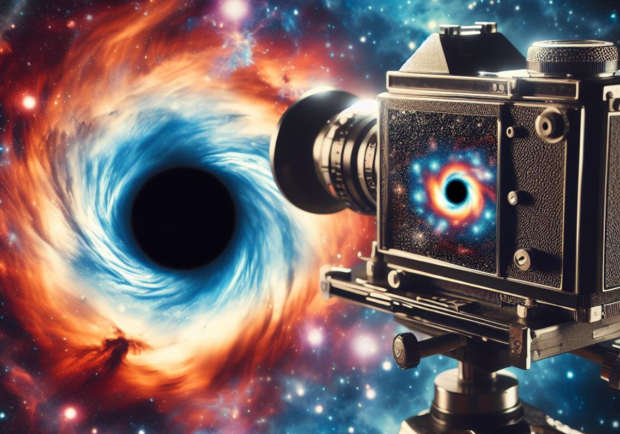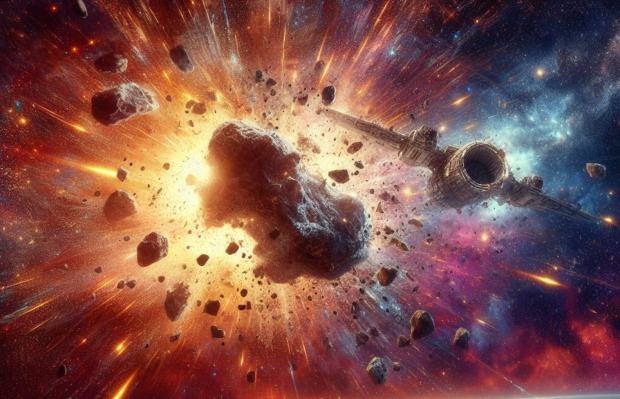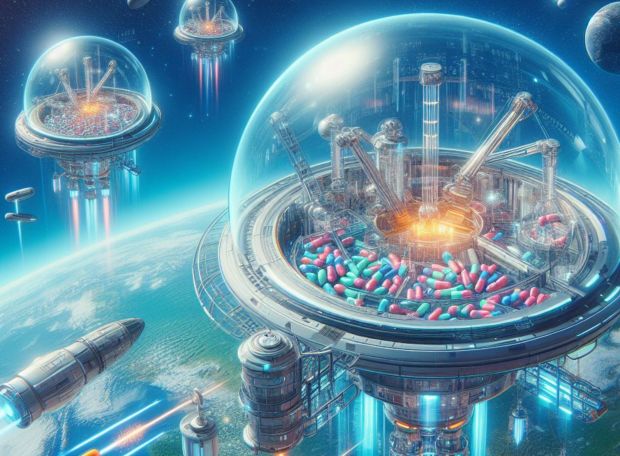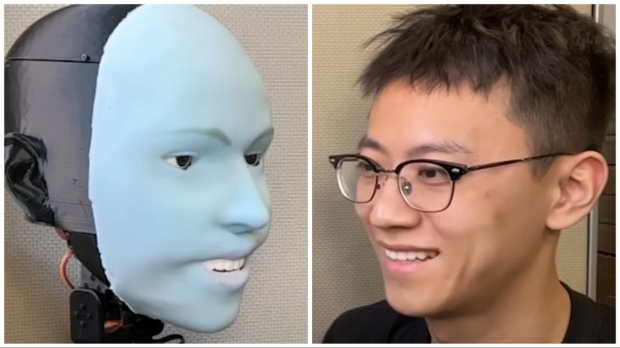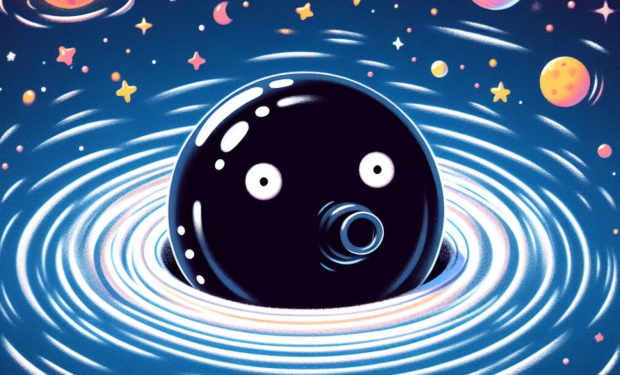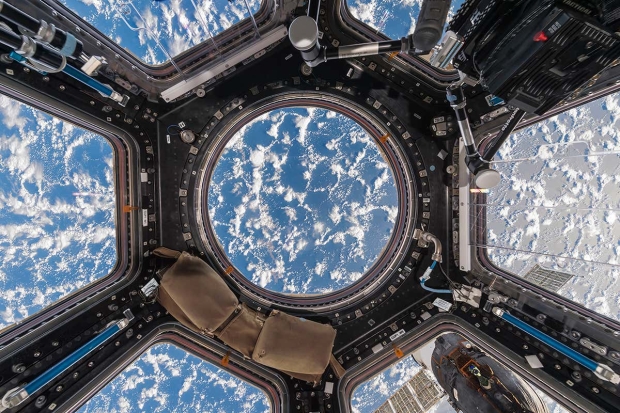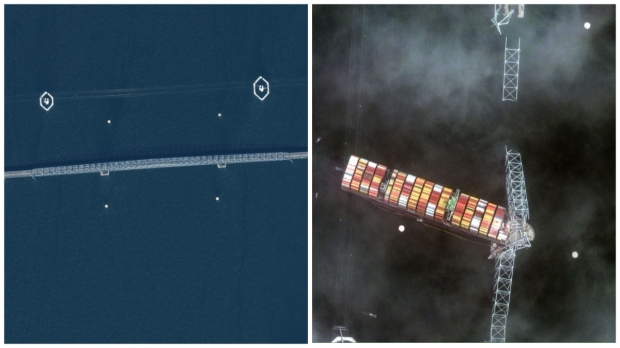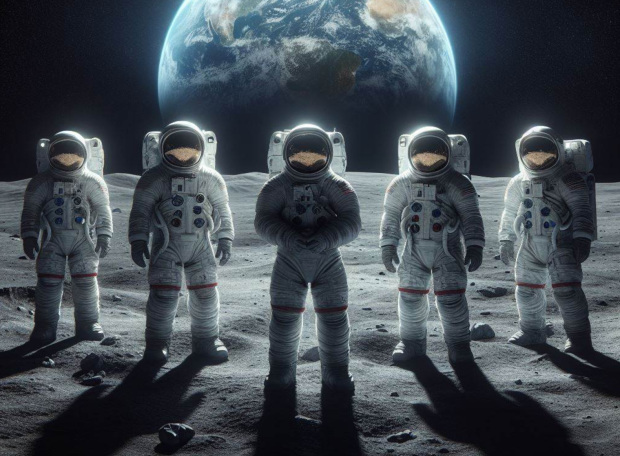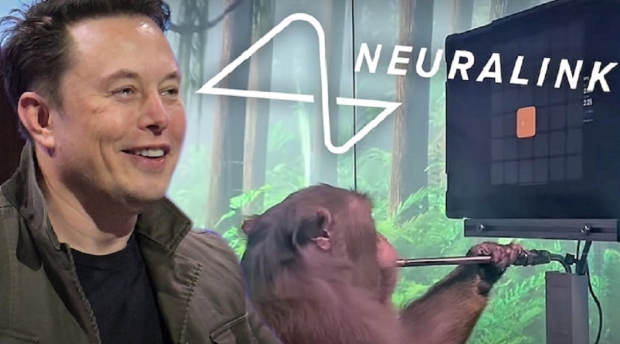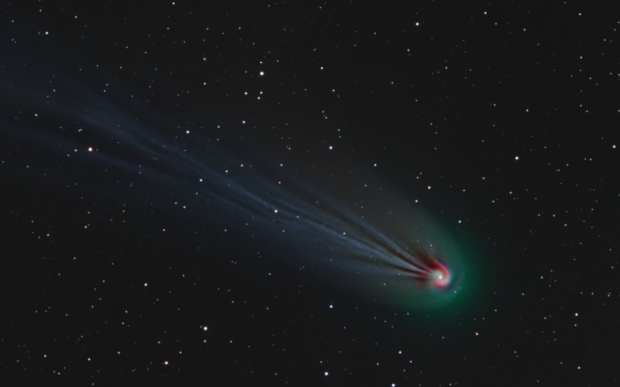Science, Space, Health & Robotics News - Page 3
Scientists snap new photo of the monster black hole at the center of our galaxy
Remember in 2022 when astronomers snapped the very first photograph of the supermassive black hole named Sagittarius A* (Sgr A*) located at the center of the Milky Way galaxy? A team of astronomers have pointed their instruments at the region of space once again, capturing a new image of the enigmatic phenomena.
The first-ever image of the Sgr A* was captured using the Event Horizon Telescope, which is a global network array of radio observatories, and now astronomers have fired up that telescope again to measure the black hole's magnetic fields in polarized light for the first time. The image showcases a magnetic field structure that's strikingly similar to what astronomers observed in 2019, with the very first photograph of a black hole located at the center of the galaxy, Messier 87 (M87).
These results were published in The Astrophysical Journal Letters and suggest that these strong magnetic fields may be common to all black holes. Additionally, astronomer observations of M87 revealed powerful jets of material being shot out of the supermassive black hole, and these recent observations of Sgr A* indicate it could be releasing similar jets, despite Sgr A* being 1,000 times smaller than the black hole located at the center of M87.
NASA destroyed an asteroid and now it might collide with Mars
NASA's Double Asteroid Redirection Test (DART) resulted in the asteroid called Dimorphos being shattered and knocked off its original orbit, a groundbreaking mission that proved Earth has the capabilities of redirecting an asteroid should one ever pose a threat to our planet.
The test was more than successful with NASA being able to prove that a kinetic impactor is capable of changing the orbit of an asteroid, therefore changing its overall trajectory. For those that don't know, NASA launched a vending machine-sized spacecraft at an asteroid system that contained two space rocks, Didymos and Dimorphos.
Dimorphos, the smaller of the two, is orbiting its larger companion asteroid Didymos, and after the collision of the DART spacecraft, which was traveling at extremely high speeds, Dimorphos' orbit was reduced its orbit time around Didymos by 32 minutes and 42 seconds. Additionally, the impact resulted in Dimorphos' shape being completely changed. Now a new paper published in the journal Monthly Notices of the Royal Astronomical Society, details the possibility of pieces of Dimorphos entering Mars' thin atmosphere and making it down to its surface where it would create craters.
Continue reading: NASA destroyed an asteroid and now it might collide with Mars (full post)
Scientists cooked 'real good' drugs space and then sent back to Earth
Varda Space Industries, a company whose goal is to cook real life-saving drugs in space, has posted the results from its first in-orbit manufacturing stint.
The goal of the company was to autonomously manufacture pharmaceuticals in microgravity or within Earth's orbit. The idea behind this process is to reduce the cost of life-saving drugs, and according to a recent paper published on a pre-print server, Varda Space is now one step closer to achieving it. The company dubbed the mission W-1, and it included sending Varda's hardware into Earth's orbit, where it would then autonomously manufacture the therapeutics.
Varda Space sent a capsule into Earth's orbit, and it remained there for seven months. When it returned back to Earth's surface on February 21, the capsule contained the life-saving HIV/AIDS medication ritonavir. According to Varda Space cofounder Delian Asparouhov, "Them space drugs cooked real good". Notably, manufacturing pharmaceuticals in microgravity has been explored before with astronauts aboard the International Space Station and other testing via parabolic flights.
Continue reading: Scientists cooked 'real good' drugs space and then sent back to Earth (full post)
Scientists create eerie robot designed to predict when you smile
A new study published in the journal Science Robotics details the creation of a robot that's designed to predict when a human is about to smile and return the smile with its own.
The idea behind the creation of the robot named "Emo" is to assist humanoid robots in appearing more natural when faced with human interaction. The study explains that Emo is capable of predicting the smile of human its facing within one second, and is able to achieve this through cameras within the pupils of its eyes. Once the smile is detected, Emo will respond with its own smile, which isn't much of a smile and is more of a grimace, at approximately the same time as your smile being full.
The team was able to train Emo to detect smiles by performing "self modeling" in front of it. This process included the robots initiating random facial movements, which then led to Emo learning to control its facial actuators. To learn to detect a smile the researchers fed Emo with several hours of human facial expressions, leading to Emo being able to accurately predict when a smile is about to occur.
Continue reading: Scientists create eerie robot designed to predict when you smile (full post)
Scientists solve the mystery of a celestial object hiccupping
Astronomers detected a burst of bright light 848 million light years away from Earth back in December 2020, and now a new study has detailed why this unusual behavior took place.
The team traced the burst of bright light to a region of space with a supermassive black hole at its center, and since then the black hole has been relatively quiet. But during the time of activity the energy released from this region of space strangely dipped every 8.5 days before it completely settled down to near-zero activity. These releases of energy are similar to having celestial hiccups.
A new study published in the journal Science Advances details the use of the X-ray telescope NICER (the Neutron star Interior Composition Explorer), which is aboard the International Space Station. The researchers gathered four months of data on the region of space, and after analyzing the data the team landed on the conclusion that an object was passing in front of the supermassive black hole, causing the dips in energy every 8.5 days.
Continue reading: Scientists solve the mystery of a celestial object hiccupping (full post)
Astronaut snaps embarrassing photo of space junk while aboard ISS
Astronauts aboard the International Space Station (ISS) have to endure many challenges during their stay aboard the floating laboratory, and one of those challenges is making sure their possessions aren't lost to the void of space.
Unfortunately, that is what astronauts Jasmin Moghbeli and Loral O'Hara experienced on November 2, 2023, as a tool bag worth approximately $100,000 escaped from their clutches during a spacewalk. The tool bag is now being tracked from Earth's surface as it orbits the planet, which can be seen in the below video taken from Añasco, Puerto Rico, on November 11, 2023. Notably, the tool bag appears to be changing in brightness, which suggests that it's tumbling as it orbits the planet.
Furthermore, Crew-7 was transported back to Earth's surface by SpaceX's Crew Dragon capsule, and recently sat down for their first post-flight press conference where Japanese Aerospace Exploration Agency (JAXA) astronaut, Satoshi Furakawa, explained he was embarrassed when he discovered he accidently captured the tool bag when he was attempting to take a photograph of Mt. Fuji.
Continue reading: Astronaut snaps embarrassing photo of space junk while aboard ISS (full post)
Baltimore bridge collapse aftermath photographed from space
The Francis Scott Key Bridge in Baltimore collapsed early Tuesday morning when it was struck by a massive cargo ship.
The tragic event has now been captured by space, showcasing the 1.6-mile (2.57 km) long bridge mostly submerged in the cold waters of the Patapsco River. The massive cargo ship that measures 984 feet, named Dali, was en route to its destination in Colombo, Sri Lanka when it lost power and unfortunately steered itself into one of the critical pillars supporting the Key Bridge. Within just minutes, the bridge collapsed, sending people and vehicles into the water below.
Six people are presumed dead, with rescue efforts still underway to search for any remaining survivors. Before the collision took place, the ship sent out a signal to officials informing them that the cargo ship was going to collide with one of the pillars.
Continue reading: Baltimore bridge collapse aftermath photographed from space (full post)
Scientists discover the moon shakes much more than they previously thought
A new study published in the Journal of Geophysical Research details the discovery of tens of thousands of seismic events on the moon that were previously unknown to researchers.
The findings were presented at the Lunar and Planetary Science Conference. The space agency explains that billions of years the moon formed vast basins called "mare", which researchers assumed were dead, bereft of any geological activity that likely occurred before dinosaurs were even on Earth.
However, researchers conducted a survey on more than 12,000 images of the moon and found that one mare has been "cracking and shifting as much as other parts of the Moon" and may very well still be happening today. Notably, between 1969 and 1977, seismometers that Apollo astronauts stationed detected around 13,000 moonquakes, and now one researcher has gone back through the Apollo data with a fine-toothed comb and found an additional 22,000 moonquakes, bringing the grand total to around 35,000.
US lawmaker comes after FDA for ignoring 'troubling evidence' about Neuralink
A letter has been sent to the Food and Drug Administration (FDA) asking why the regulator didn't conduct an investigation into the company before it granted it approval for human testing.
The lawmaker is Democratic U.S. Representative Earl Blumenauer, who sent a letter to the FDA on Monday claiming the regulator ignored "troubling evidence" of Elon Musk's Neuralink violating animal testing procedures. Notably, animal testing violations at Neuralink can be traced back to at least 2019, with previous reports from Reuters citing a complaint that accused Neuralink's brain implant testing on monkeys produced "recurring infections", "suffering" and significant health complications that comprised the "integrity of the research".
Back in September 2023, Neuralink founder Elon Musk responded to the allegations, saying, "No monkey has died as a result of a Neuralink implant" and that the monkeys that have died throughout testing were terminally ill and "close to death already". As for the lawmaker's letter, Blumenauer also cited Reuters reports of Neuralink employee complaints of "hack jobs" due to a rushed schedule, which resulted in needless suffering and deaths. Blumenauer has asked the FDA how it reconciled these reports, which led to Neuralink being granted approval for human trials.
Scientists photograph explosive city-sized 'devil comet' with hidden spiral
The dreaded "devil comet" is back in the news as an astronomer has decided to snap an incredible photograph of its core, rather than the extremely long iconic tail.
The comet that many astronomers around the world are now focussing their instruments on is none other than 12P/Pons-Brooks, a 10.5 mile-wide (17 kilometers) ball of ice and rock that circles the Sun at an extremely elliptical orbit that takes 71 years to complete.
12P is currently on its way to make its closest approach with the Sun, which is scheduled to happen sometime in April, and while it approaches, the Sun's rays continuously heat up the surface of the comet, melting its icy outer shell, creating gas that then turns into what we know as the iconic comet tail, or as astronomers call the coma.


